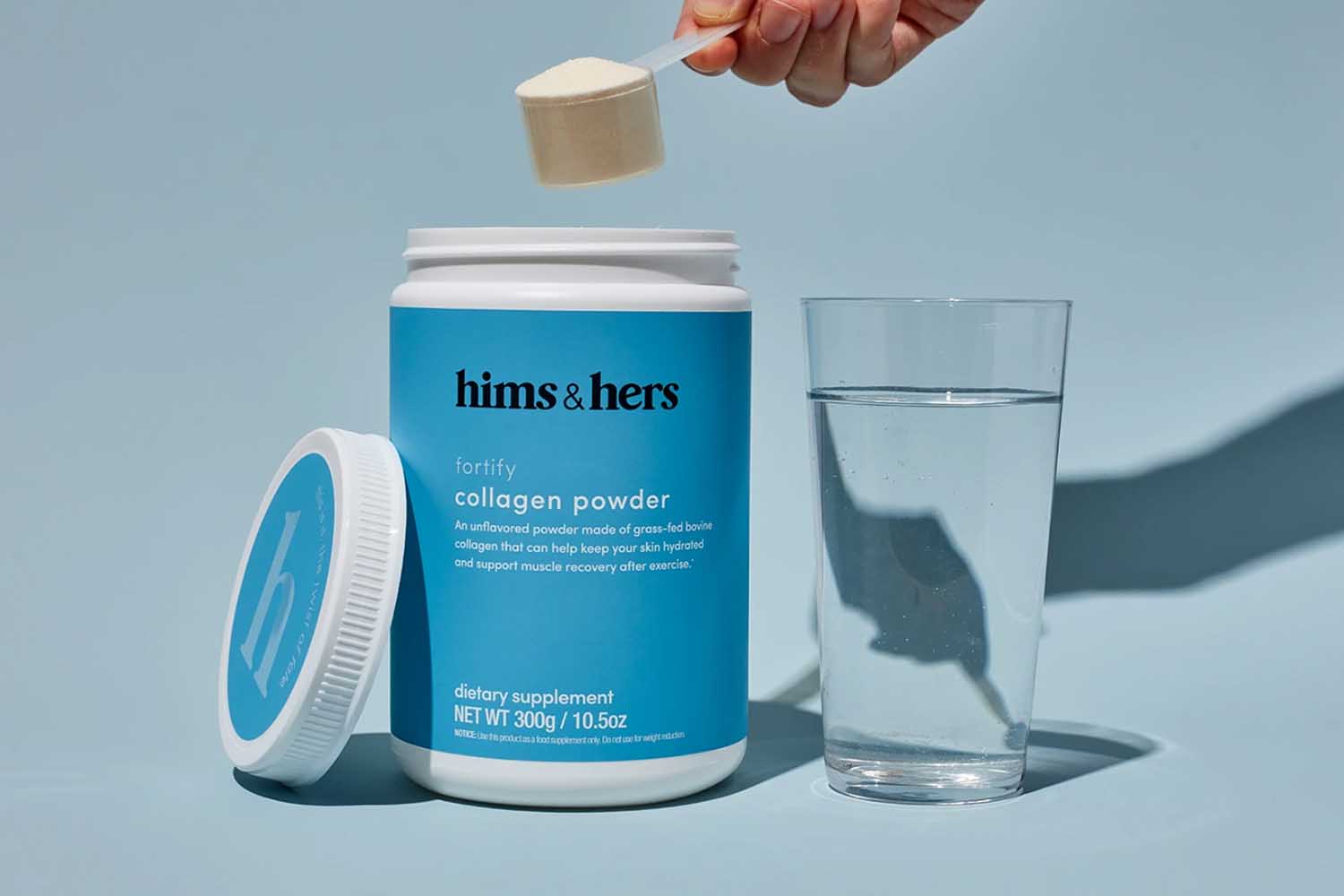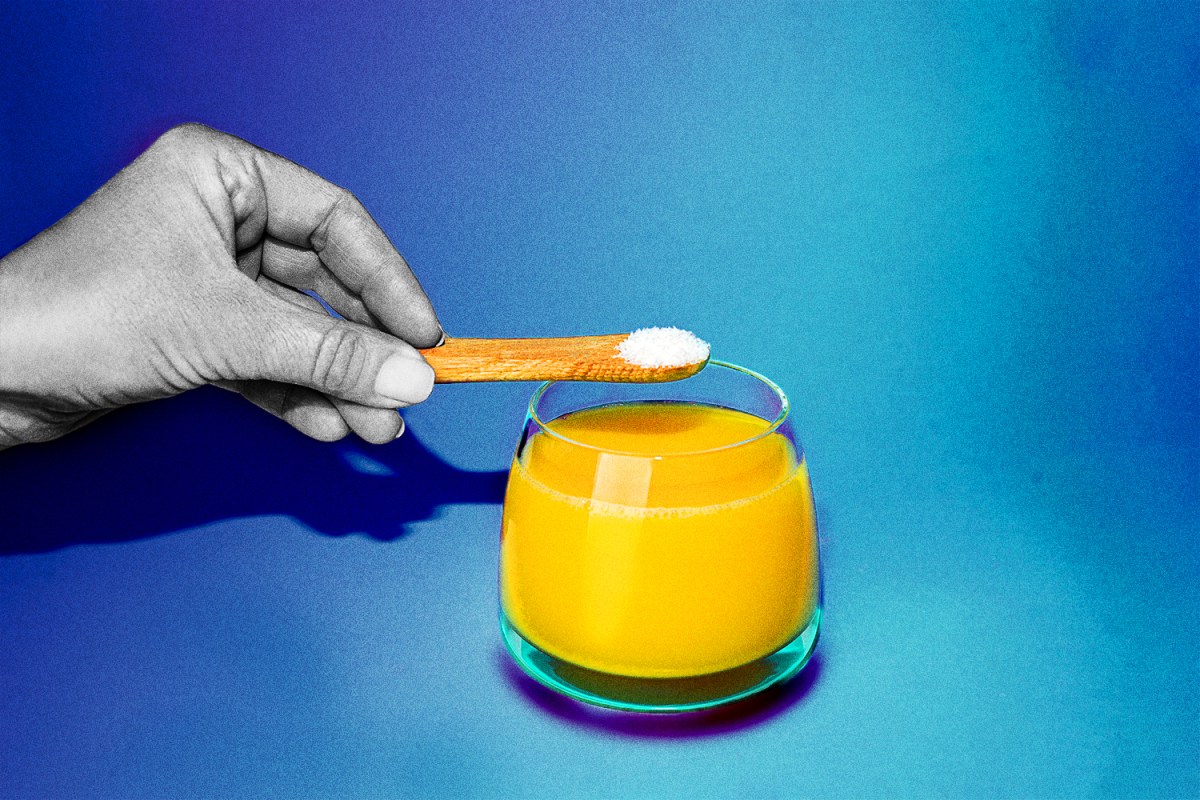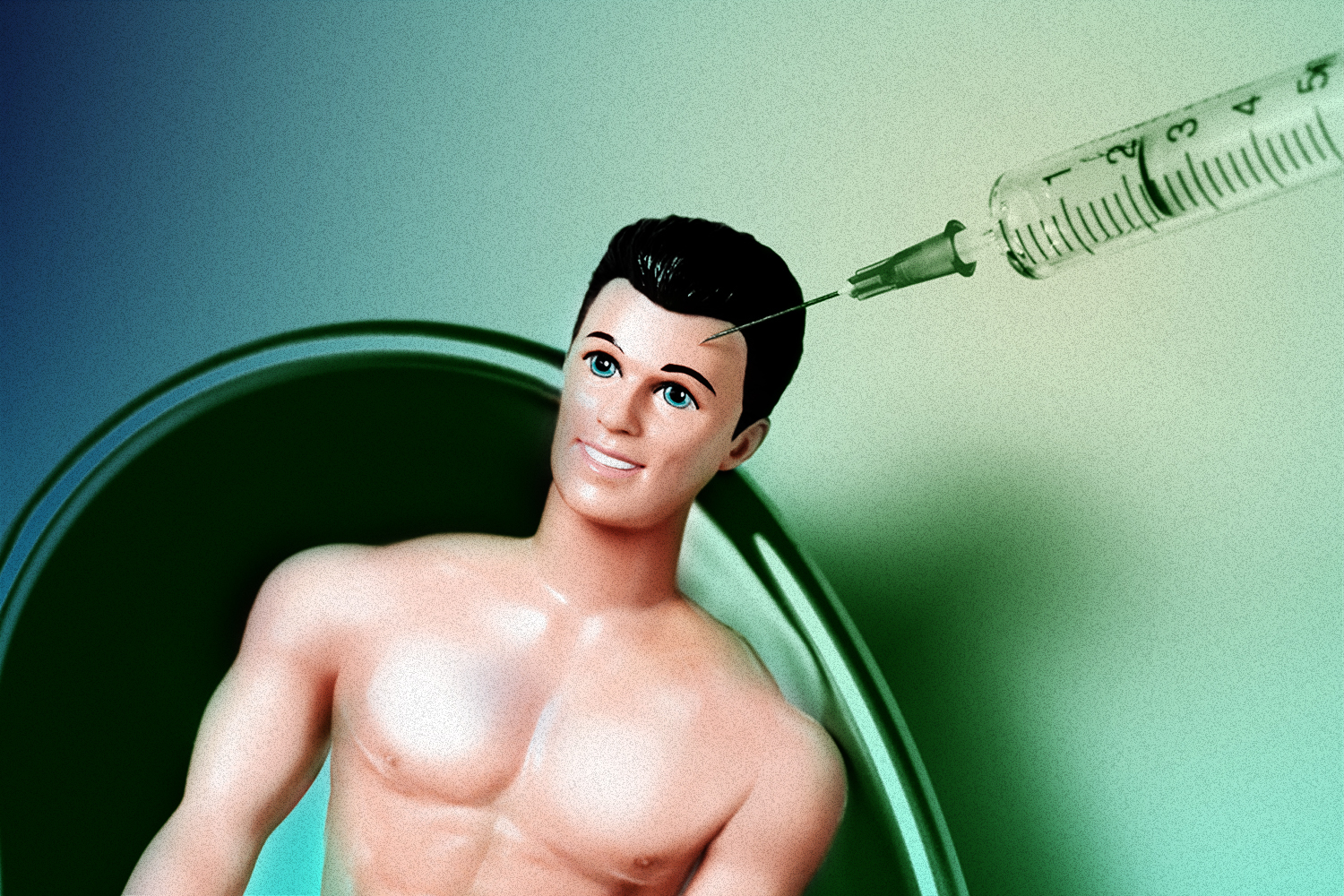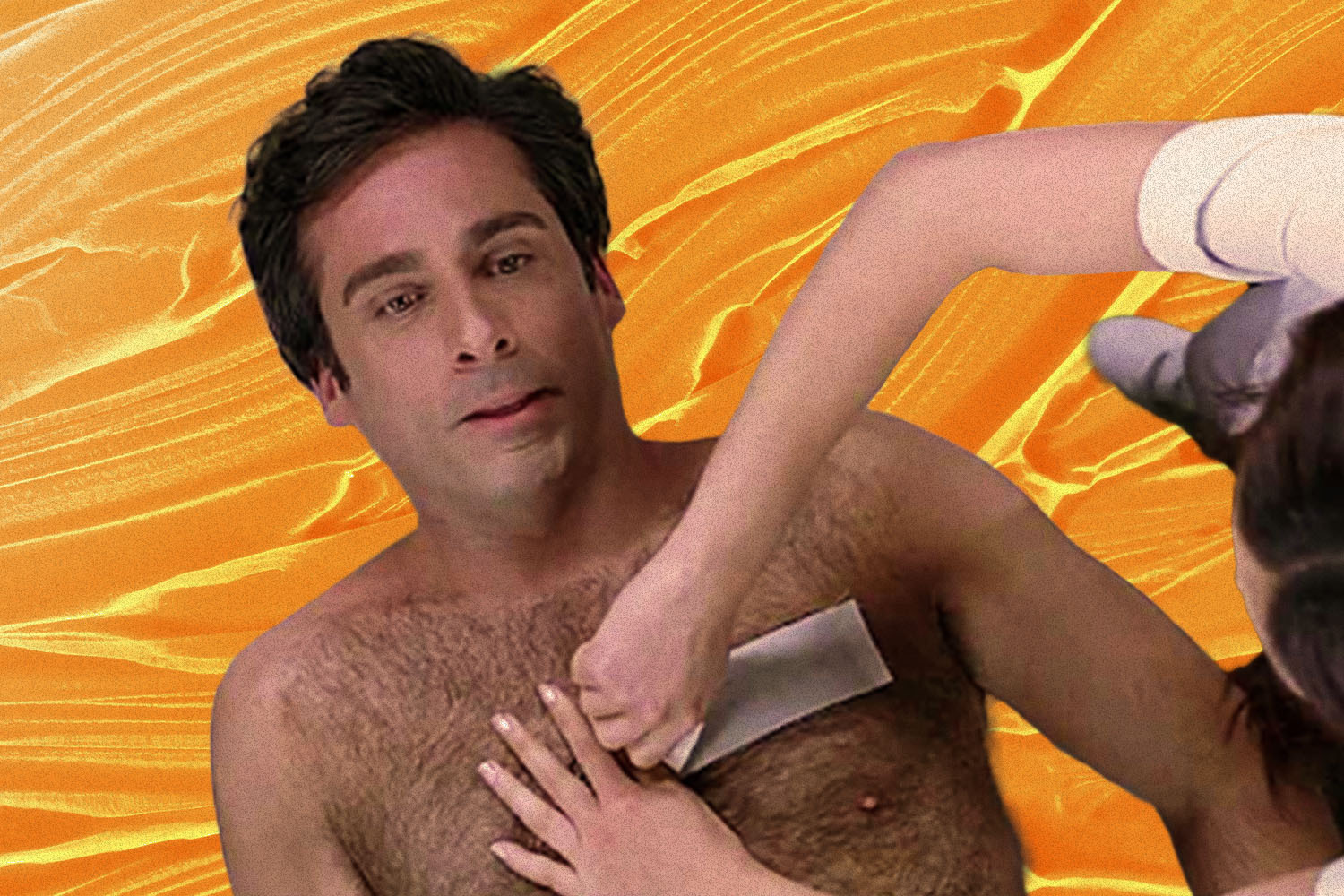Every few years or so, there comes along a buzzy new wellness solution destined to save our bodies from inevitable decay. The past three years have seen the rise of collagen supplements, marketed as the key to keeping skin hydrated, glowing and ageless.
The global collagen market is expected to reach $7.5 billion by 2027, and influencers, celebrities and wellness brands like Care/of, hims and Vital Proteins (Jennifer Aniston’s preferred collagen brand) are all vouching for the skin-saving protein, encouraging us all to incorporate the protein into our daily skincare routine.
This is typical of the skincare industry at large. Spurred on by ceaseless conversations on social media and perhaps a collective sense of Zoom dysmorphia, obtaining clearer, smoother, younger-looking skin is a big to-do right now for both men and women. We’ve talked about how more men are getting botox and taking interest in proper skincare routines, and generally, men are becoming more cognizant of the processes and products they should be relying on to future-proof their faces. And while talks around collagen have been ongoing for years, the current hype certainly seems to be a byproduct of this heightened fixation on skincare and anti-aging solutions.
I was introduced to collagen on Christmas Day, when I unwrapped a cylindrical container labeled “collagen creamer” and proceeded to ask my mom what the hell it was. “It’s supposed to help with your skin,” she answered. “Khloe Kardashian is a spokesperson for it.” Now anything touted by a Kardashian usually raises alarm bells in my brain, but at that period in time, my skin was having a major bitch fit: rashes, breakouts, dryness and itchiness. I was down to try just about anything, and it’s not like it took much devotion and sacrifice. Every morning I would simply take a spoonful of the powder and mix it in with my coffee. I couldn’t even taste it.
I still add collagen to coffee and smoothies even though I have no idea if it’s doing anything for my skin, which does look phenomenally better since December, but for now, I’m mostly attributing that to the topical washes my dermatologist prescribed.
Whenever a wellness product comes to the fore thanks to promotion by influencers and Kardashians, it can be easy to chalk it up to nothing more than a money-grabbing scheme. But in the past, I’ve spoken to dermatologists who swear by products like Skinaide, a collagen drink formulated by medical experts that supposedly boosts your body’s natural production of collagen and hyaluronic acid for more radiant, youthful skin. If you’re looking to delay the aging process or simply just want healthier-looking skin, being mindful of the body’s natural collagen production and the ways you can continuously boost it — whether that be from supplements, your diet or professional skincare services — is beneficial. But the research on collagen supplements is preliminary, and even experts have differing opinions on their effectiveness. So I took a little collagen deep dive that included something called a vampire facial to understand what the current hype is all about, and if, to preserve my youthful glow, I should be ingesting it.
First and foremost, what exactly is collagen?
Collagen is the most abundant protein in the body and serves as the main structural protein for connective tissue, explains Gabrielle Garritano, a board-certified, New York-licensed Physician Assistant and Founder and CEO of JECT that specializes in medical-grade skincare treatments.
Collagen is found in the skin, bones, tendons, ligaments and organs, and it’s why some evidence has shown that taking collagen supplements not only benefit the skin, but can relieve joint pain, strengthen nails, stimulate hair growth and possibly prevent bone loss and boost muscle mass.
“Without collagen, our bodies would not have that necessary structural support and we would look and feel like jelly,” adds Dr. Michele S. Green, a world-renowned cosmetic dermatologist based on New York City’s Upper East Side. “Collagen improves the tone and texture of your skin, but also increases bone density and muscle mass, and improves the health of your overall Musculoskeletal system.”
It’s what gives our skin structure and elasticity
“Our skin is composed of approximately 80% collagen and works in combination with another protein called elastin to give our skin structure and elasticity,” says Garritano.
Beginning in our twenties, we start to lose about 1% of our collagen each year, which leads to less radiant and plump skin. As we age, we actually break down collagen faster than we can replace it, explains Green.
“Although aging is inevitable and is the main reason for the loss of collagen, sun exposure, oxidative stress such as pollution, and smoking can accelerate the process,” adds Garritano.

Real talk: For ageless skin, should we be taking a collagen supplement?
The most popular type of collagen supplement on the market consists of hydrolyzed collagen which has been broken down from the protein’s original indigestible form into smaller peptides. These peptides still utilize the same amino acids as collagen, but are more easily absorbed in the body.
Unfortunately for those who have been guzzling pounds of collagen powder (myself included), there isn’t enough evidence to support collagen supplements and their effectiveness on the skin, which is pretty much the main issue when it comes to this entire newfound wellness trend: we simply don’t have enough research yet.
“The efficacy of ingesting collagen has not been scientifically proven,” says Green.
Some smaller studies have shown promise, though it’s important to note that many of these studies have been funded by collagen manufacturers. “Of the studies done, some have shown that consuming collagen can improve skin elasticity and overall hydration, as well as increase bone density,” says Garritano.
Additionally, a 2019 review of 11 studies on collagen supplementation published in the Journal of Drugs in Dermatology found preliminary results confirming “the short and long-term use of oral collagen supplements for wound healing and skin aging,” and that supplements increased skin elasticity and hydration. But again, the science is in its infancy, and as of right now, there are no solid scientific studies we can point to that taking collagen supplements will increase collagen production.
One of the concerns with consuming collagen is how much of it is actually absorbed by the skin. “In theory, the body utilizes absorbed collagen in areas that need repair the most. The downside to collagen consumption is that you signed yourself up for a very committed, expensive relationship. You’ll most likely have to continue collagen supplementation to see long-lasting results,” explains Garritano. However, she adds research has shown no concerning side effects or downsides to taking the recommended dose of collagen supplementation. So if you want to, you can keep putting that powder into your coffee — just don’t expect it to perform miracles.
Your diet can also help boost collagen production
Surprise! You can actually boost your body’s natural collagen production by eating a rich, nutritious, colorful diet. “We can increase our collagen consumption by incorporating collagen boosting foods into our diet” says Garritano.
Easily digestible sources of protein from foods like bone broth, chickpeas, beans, chicken, cheese, quinoa and fish are all ideal collagen boosters. And while animal-based sources provide more essential amino acids for collagen production, consuming nutrient-dense plants is just as important. So be sure you’re eating your daily dose of fruits and vegetables that are high in vitamin C, like tomatoes, berries, oranges, greens, broccoli and cauliflower.
“The more color on your plate, the more antioxidants you’ll consume from polyphenols, which protect cells from damage, bringing you one step closer to regaining collagen,” she adds.
Along with a topical retinol (the thing that’s gonna help you stay looking forever young), research has also shown collagen-boosting benefits from foods containing vitamin A: think sweet potatoes, carrots, red pepper, mango, apricot, cheese, eggs, oily fish and yogurt.
Skip the powder and get a professional treatment
If you really want to get your collagen-boosting money’s worth, consider going to the pros.
“There are definitely professional services which use the body’s own collagen-building process to help the skin look healthy and young. The key with these professional services is that they are deep enough to penetrate the dermal layer of the skin. This targeting mechanism ensures that collagen is being produced,” explains Green.
I recently tried a procedure called Microneedling at JECT’s Upper East Side location. It’s a skin-rejuvenating treatment where tiny needles are poked into your face, which induces localized micro-injuries to the skin that then stimulate collagen production. These small wounds trigger the skin to repair itself by producing new collagen, which in turn, gives us healthier, smoother skin. You can even infuse your own Platelet Rich Plasma (PRP) — aka your own blood — which is rich in essential growth factors and stimulates further collagen production. Sounds pretty gnarly, but it was a relatively painless procedure and the healing process only took 1-2 days. While my results won’t kick in for another week and a half, my face already feels smoother and any signs of prior blemishes have subsided.
Microneedling, however, requires a bit of downtime, so if you’re strapped for it, you could also consider a low-maintenance Radiofrequency Skin Tightening or Thermage treatment. With these procedures, energy waves are used to heat the deep layers of the skin, which stimulates collagen and elastin production, and also triggers tissue contraction, resulting in tighter, smoother skin.
Dermal fillers and wrinkle reducers are also common treatments to rectify signs of collagen loss. Not only will they temporarily treat fine lines and wrinkles, but “studies show that over time, repeated injections of dermal fillers will stimulate the body’s own collagen production,” explains Green.
So while you can probably skip the daily dose of collagen powder for now, there are still plenty of ways to save your skin from its crypt-keeper fate. Staying mindful of your body’s depleting collagen production is just one of them.
The Charge will help you move better, think clearer and stay in the game longer. Subscribe to our wellness newsletter today.
























